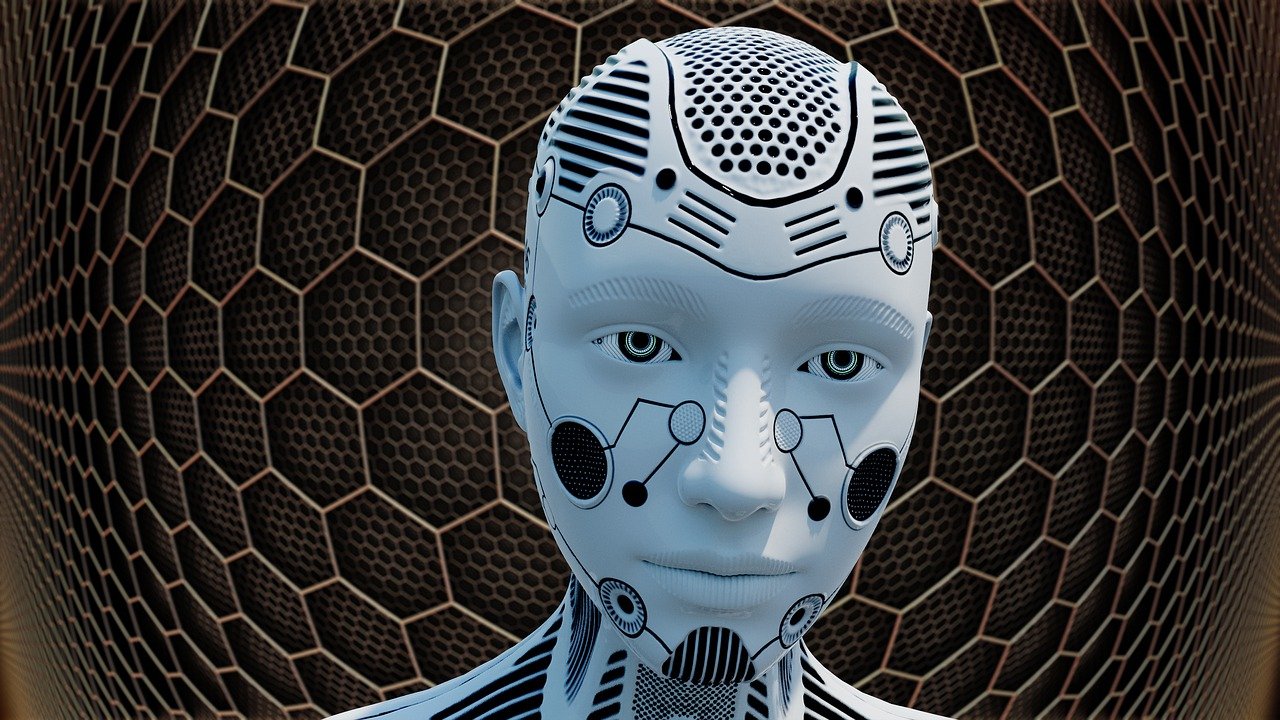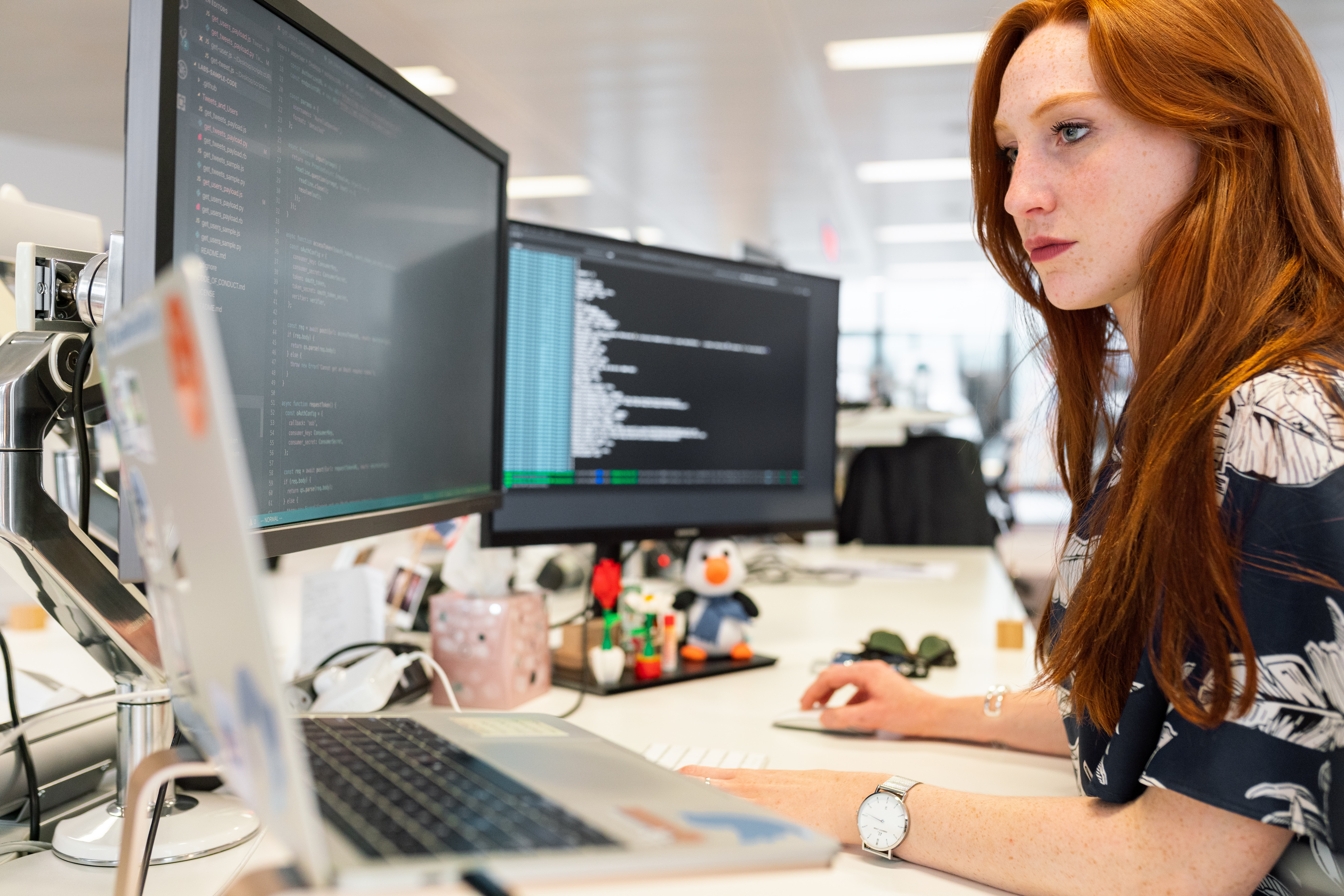vGHC EMEA Tracks, and Sessions

Check out our exciting line-up of tracks offered during vGHC EMEA. We also have terrific programming and sessions planned with engaging experiences.
Career Track
Career Track (Leadership, Early-career, Mid-career)
Technology Tracks
Artificial Intelligence/Machine Learning
Data Science
Open Source
Software Engineering
Programming and Sessions
Educational Sessions
Sponsor Hall
Networking Spaces
1:1 Meetings (Previously Career Fair)
Career Track
 Women face a unique set of opportunities and challenges- both at a professional and personal level. The career track provides a platform for attendees to learn and discuss a wide variety of topics to help support each other and advance their careers. Proposals that present a unique perspective with clear takeaways will be preferred. Topics of interest for the career track include but are not limited to:
Women face a unique set of opportunities and challenges- both at a professional and personal level. The career track provides a platform for attendees to learn and discuss a wide variety of topics to help support each other and advance their careers. Proposals that present a unique perspective with clear takeaways will be preferred. Topics of interest for the career track include but are not limited to:
Career Management and Mastery
- Professional brand and presence
- Practical tips to securing your dream job
- Product vs. Developer vs. Design vs. Data Scientist- demystifying the tech roles
- Startups vs. mid-size vs. global organizations vs. non-profits vs. govt- finding the right fit
- Mentoring vs. sponsorship- gaining them and becoming one
- Building your dream network
- Collaborating and managing upwards and sideways
- Entrepreneurship and intrapreneurship
- Crucial and difficult conversations in the workplace
- Strategic thinking skills and building alliances
- Defining balance and success in career
Diversity, Inclusion and Belonging
- Leveraging intersectionality in the workplace
- Conscious vs. unconscious bias
- Imposter syndrome: identifying and overcoming
- Parenting in tech – the up’s, down’s and everything in between
- Motherhood in tech – the unique challenges and perspectives mothers bring
- Reentering the workforce after a break
- Cultivating the sense of belonging at work
- Becoming better allies
- Pay equity in the workplace
- Resilience and caring for your whole self
Senior Career Transition
- Interviewing for a senior leadership position
- Reaching the C-suite and what’s beyond it
- Navigating mergers and acquisitions
- Traits of a successful leader
- Senior career trajectories for different disciplines
- Culturally conscious leadership
Artificial Intelligence/Machine Learning
 Envisioned in the 1950s at a workshop at Dartmouth College, Artificial Intelligence (AI) is a field with a rich and varied history. Contributions over the decades include research on expert systems, knowledge representation, evolutionary algorithms, and advanced statistical techniques. More recently, explosive growth in computing power and data availability has enabled multi-layer artificial neural networks, well known as deep learning, to revolutionize the field of AI. With applications ranging from cancer research to self-driving cars, AI has become one of the most exciting areas in tech.
Envisioned in the 1950s at a workshop at Dartmouth College, Artificial Intelligence (AI) is a field with a rich and varied history. Contributions over the decades include research on expert systems, knowledge representation, evolutionary algorithms, and advanced statistical techniques. More recently, explosive growth in computing power and data availability has enabled multi-layer artificial neural networks, well known as deep learning, to revolutionize the field of AI. With applications ranging from cancer research to self-driving cars, AI has become one of the most exciting areas in tech.
The AI Track provides a place for researchers and practitioners to present and discuss the latest trends and research results, novel tools, practical experiences, and technical challenges. As this is a technical track, we especially welcome presentations and workshops and do not encourage panel proposals. Submissions should have enough content for the program committee to fully evaluate your work: please consider this equivalent to a short paper submission for an academic conference (3-4 pages). Please keep in mind that this is our most a competitive technical track, with an acceptance rate on par with top tier AI conferences.
We are looking for technical submissions in the broad field of AI, including, but not limited to:
Research Topics in AI
- Machine Learning (Deep Learning, Reinforcement Learning, Active Learning, Model Interpretability, Transfer and Multitask Learning, etc.)
- Computer vision
- Natural Language Processing (machine translation, generation, dialogue systems, speech recognition and synthesis)
- Robotics and Autonomous systems
- Constraint Satisfaction and Optimization, Heuristic Search
- Information Retrieval
- Knowledge Representation and Reasoning (Logic, Reasoning with Beliefs, Reasoning Under Uncertainty, Geometric and Spatial Reasoning)
- Game Theory and AI
- Planning, Routing, and Scheduling
Humans and AI
- AI and Privacy
- Ethical AI (e.g. fairness, impact of AI on society)
- AI for social good
- Augmented intelligence
- Human-centric AI (helper robots, sensing systems)
AI Application Areas
- Medicine and Healthcare
- Finance and Commerce
- Education and Social Sciences
- Security and Privacy
- Energy and Environment (e.g. smart cities)
- Customer interaction (e.g. chatbots)
- Gamification
Data Science
 In recent years, data has exploded, and the need to make sense of it and harness it towards practical applications is stronger than ever. Data science has emerged as the discipline to tackle this vast data, develop insights, and deliver intelligent solutions to optimize business performance as well as improve customer experiences.
In recent years, data has exploded, and the need to make sense of it and harness it towards practical applications is stronger than ever. Data science has emerged as the discipline to tackle this vast data, develop insights, and deliver intelligent solutions to optimize business performance as well as improve customer experiences.
As the discipline has been developing, the importance of sourcing and using data ethically and equitably has become a key area of focus for practitioners, further encouraged by privacy laws and considerations, so perspectives in that aspect of the field are highly encouraged.
We are looking for submissions in the following categories:
Data Engineering & Infrastructure
- Data pipelines (e.g. from acquisition to prediction).
- Heterogeneous data integration.
- Data management, including quality and lineage.
- Infrastructure, cloud, and distributed applications.
- Model productionalization.
- Data scaling.
Data Analysis & Modeling
- Data analysis (e.g. statistical, in situ, real-time).
- Streaming and other novel algorithms in support of data science.
- Cloud and distributed data analysis.
- Applied machine learning.
- Knowledge discovery and data mining.
- Search and recommendation.
- New interfaces and visualization.
Novel Applications, Use Cases, and Lessons Learned
We encourage submissions focusing on novel applications, use cases, and lessons learned in any field, including but not limited to:
- Social sciences and social media.
- Physical sciences.
- Life sciences.
- Medicine and health informatics.
- Finance
- Marketing
- E-commerce, advertising.
- Technology (networks, privacy and security, IoT).
Open Source
 Following last year successful track, we continue to encourage submissions for the open source software track and focusing on hands-on workshops as well as presentations. The content designed to introduce new skills and deepen technical expertise in this area. We’re looking for presenters with a range of experience to share from how to get started when you’re new to open source to pro-conning where open source makes the most sense to deeper dives into technical topics our audience may not find elsewhere. Submissions are encouraged in the following areas:
Following last year successful track, we continue to encourage submissions for the open source software track and focusing on hands-on workshops as well as presentations. The content designed to introduce new skills and deepen technical expertise in this area. We’re looking for presenters with a range of experience to share from how to get started when you’re new to open source to pro-conning where open source makes the most sense to deeper dives into technical topics our audience may not find elsewhere. Submissions are encouraged in the following areas:
- Making a living with free software: Workshops should help our audience understand what role free and open source software plays in the tech industry and IT/ICT; high-demand languages, tools, and platforms; how to work in virtual open source communities; where to find great jobs at any stage in your career, how to get started.
- Developing a product while having open source in mind
- Developer tools and platforms and methods: Automation, IDEs, Git and GitHub. Agile, Security tools, and auditing your code. Bug-Tracking, documentation. Team building, giving back. Languages you may have missed in C.S. class: Python, PHP, Python, Ruby, Rust, and Golang to name some. Introductory or Intermediate workshops recommended.
- Securing your Open Source Software: Some say that open source software is more secure since there are many pairs of eyes fixing issues. Some say it is just the opposite. From hackers to stealing, we invite workshops on how you take all precautions to secure your open source software.
- Teaching Open Source: How to get OSS curriculum into the classroom; best practices, success stories and train wrecks to learn from, exemplary institutions, resources.
Software Engineering
 Software increasingly underlies the technologies that permeate every aspect of our lives. Its ubiquity and inherent complexity emphasize the importance of adhering to responsible and well-defined practices. Software engineering is the application of knowledge, methods, and principles to the development of creative software solutions that are often enriched through collaborations with individuals from different disciplines, such as business, engineering, and science.
Software increasingly underlies the technologies that permeate every aspect of our lives. Its ubiquity and inherent complexity emphasize the importance of adhering to responsible and well-defined practices. Software engineering is the application of knowledge, methods, and principles to the development of creative software solutions that are often enriched through collaborations with individuals from different disciplines, such as business, engineering, and science.
We seek high-quality submissions on fitting within one of the focus areas described below.
Continuous Integration, Agile Methodologies, Testing, and Automation
From ideas to methods to frameworks and tools, automation of quality assurance efforts increases the value of your products. Agile practices such as iterative planning, short feedback loops, early delivery, and continual improvement are a major contributor to building higher quality software.
- State-of-the-Art Testing: eg. Testing-as-a-Service, IoT testing, testing in DevOps, CrowdSourced testing, AI/ML and automation in testing
- Agile Engineering Practices, Testing, and Automation
- Quality of Code: Continuous Integration, Deployment, and Delivery
- Code reviews, Programing Styles
Digital transformation, DevOps, and Programming Languages
According to Forbes: “89% of enterprises have plans to adopt or have already adopted a digital-first business strategy”. With such a high interest from all businesses, we seek to explore arguments like the digital integration of social networks with agile and DevOps; the novelties in business process management; the evolution and trends of programming languages; the latest techniques within Biomedical Informatics. Moreover, as technology continues to fill every aspect of our lives in stronger and deeper ways, issues of integrity and standards have become increasingly important, hence we invite submissions evaluating the short-term and long-term ramifications digital transformation has on society;
- Digital Transformation
- Programming Languages (evolution and trends)
- DevOps Tools, Automation, and Patterns
- Biomedical Informatics
- Software Engineering Ethics and Policy
Large-Scale Software; Trends and Future of Software Engineering
With the next billions users still following to become active Internet users <internetworldstats.com/stats.htm>, designing scalable software is one of the main focus in architecting software today. Innovation, whether evolutionary or revolutionary, requires well-defined practices and discipline. For example, the huge growth of the as-a-service model is opening so many new opportunities to simplify IT infrastructure, and furthermore, according to disruptionhub.com, by 2020 “the global XaaS (anything as-a-service) market is forecasted to grow by 40 % each year”. We seek submissions exploring the latest trends, pioneering practices and tools, research, and driving digital disruption and innovation in 2019 may be, but are not limited to, the following:
- Cloud Computing, Serverless, and Microservices
- Performance/Load Testing at Scale
- Scaling DevOps Capabilities
- Cultures and Leadership
- Strategic automation, renewable energy expansion, and sustainability are becoming a major innovation driver
- Disruptive technologies and redefining the way we interact with machines
Educational Sessions
 Attendees can look forward to inspirational role models including keynote speakers and industry veterans. Exciting opportunities for learning will come in two primary tracks (as mentioned above) — the Career Track, featuring sessions for various levels of career development, and the Technical Track, featuring sessions on artificial intelligence, machine learning, data science, open source, and software engineering in general.
Attendees can look forward to inspirational role models including keynote speakers and industry veterans. Exciting opportunities for learning will come in two primary tracks (as mentioned above) — the Career Track, featuring sessions for various levels of career development, and the Technical Track, featuring sessions on artificial intelligence, machine learning, data science, open source, and software engineering in general.
Sponsor Hall
 Grace Hopper Celebration (GHC) has made a huge impact in increasing the presence of women in STEM, tech and engineering roles. Many women professionals already face barriers to entering the tech industry, and this has been amplified by the effects of COVID-19 on the job market. vGHC EMEA will included a virtual Sponsor Hall featuring company booths hosted by our Sponsors.
Grace Hopper Celebration (GHC) has made a huge impact in increasing the presence of women in STEM, tech and engineering roles. Many women professionals already face barriers to entering the tech industry, and this has been amplified by the effects of COVID-19 on the job market. vGHC EMEA will included a virtual Sponsor Hall featuring company booths hosted by our Sponsors.
1:1 Meetings
 1:1 Meetings was traditionally known as our Career Fair. vGHC EMEA attendees can learn about the companies who are supporting women technologists, some of which may be hiring. Sponsors and attendees can schedule appointments and set up 1:1 informational meetings to make connections and further explore career possibilities.
1:1 Meetings was traditionally known as our Career Fair. vGHC EMEA attendees can learn about the companies who are supporting women technologists, some of which may be hiring. Sponsors and attendees can schedule appointments and set up 1:1 informational meetings to make connections and further explore career possibilities.
Attendees who are seeking employment will be able to create a profile in this adjacent virtual space, include a resume or portfolio, and visit employer booths to research open positions, which could include online video interviews with prospective employers during the event.


 vGHC EMEA is a great way to network with peers and connect with technologists and thought leaders across Europe, the Middle East, and Africa. Attendees and Sponsors can engage and make connections through breakout sessions, track meetups, and special programs.
vGHC EMEA is a great way to network with peers and connect with technologists and thought leaders across Europe, the Middle East, and Africa. Attendees and Sponsors can engage and make connections through breakout sessions, track meetups, and special programs.